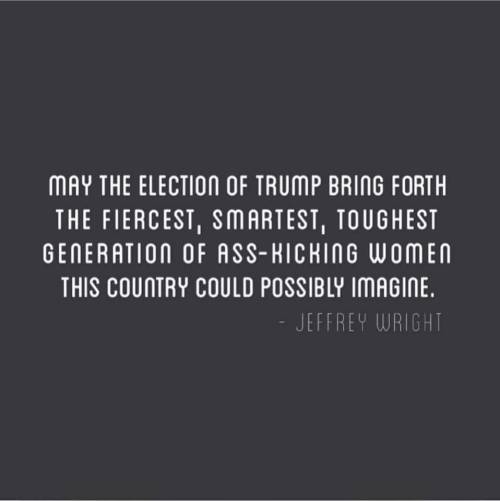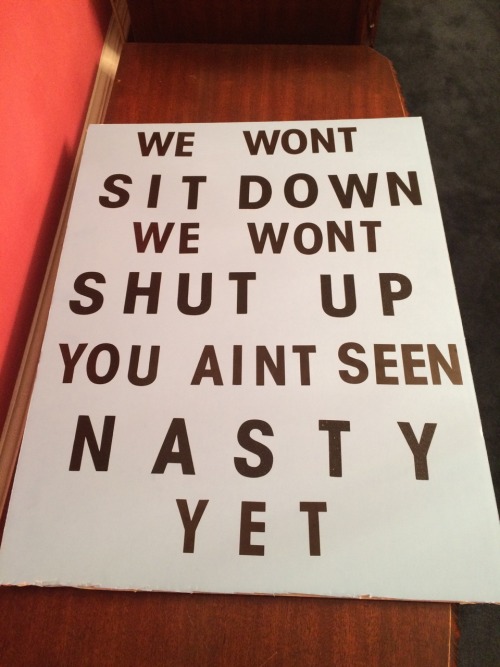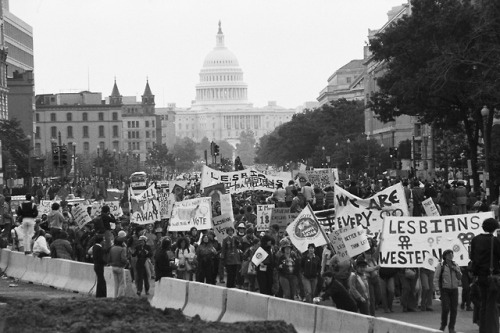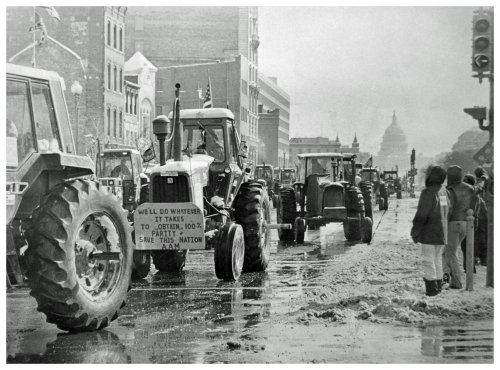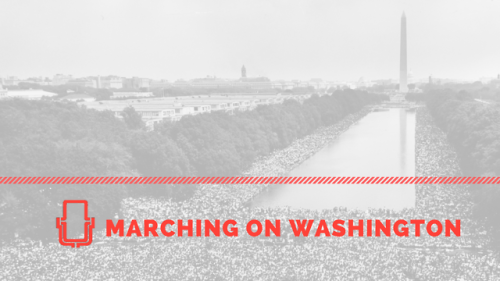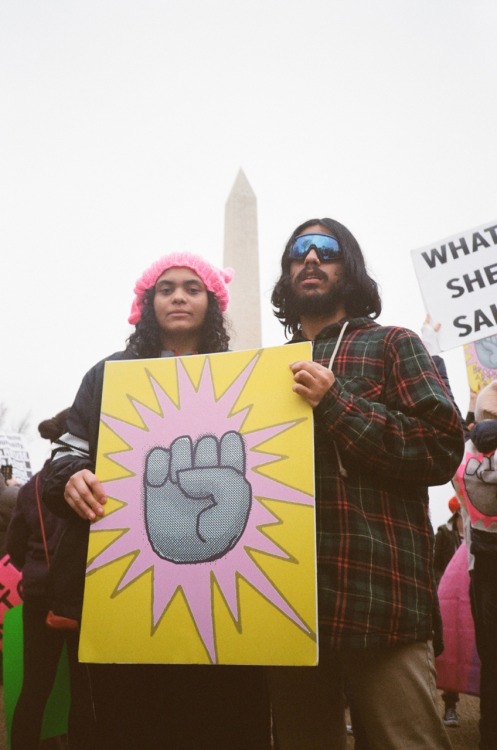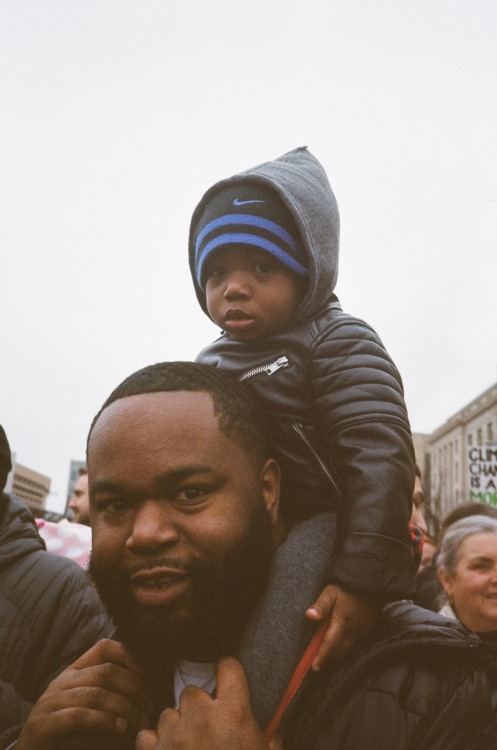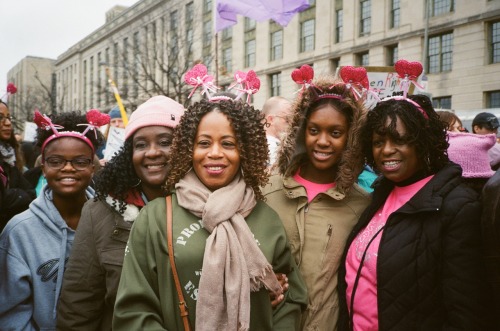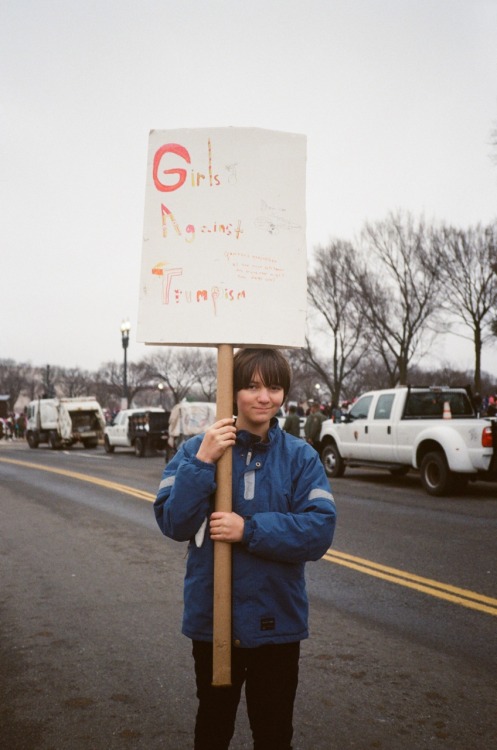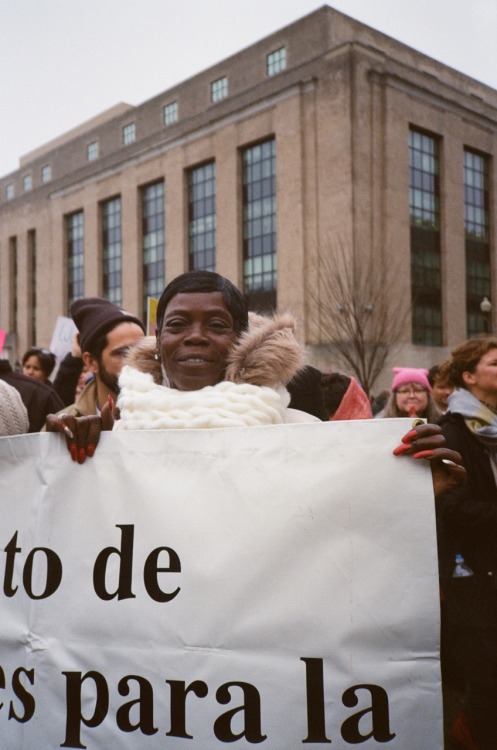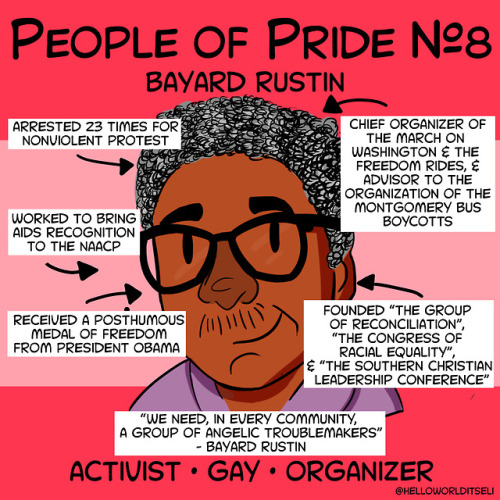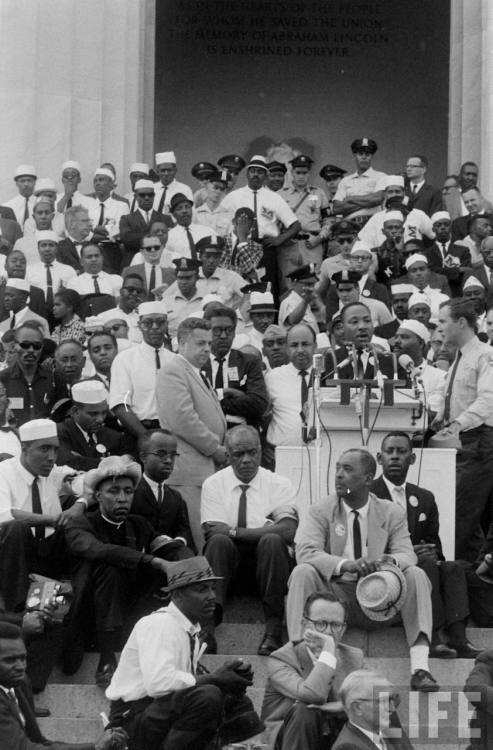#march on washington
By Stacey Chandler, Archives Reference
On the morning of August 28, 1963, about 250,000 travelers came to Washington, DC for the March on Washington for Jobs and Freedom, the biggest civil rights rally of its time. These days, the March on Washington is remembered as a major milestone of the 20th century. But in 1963, Americans were divided about whether the March was a good idea at all.
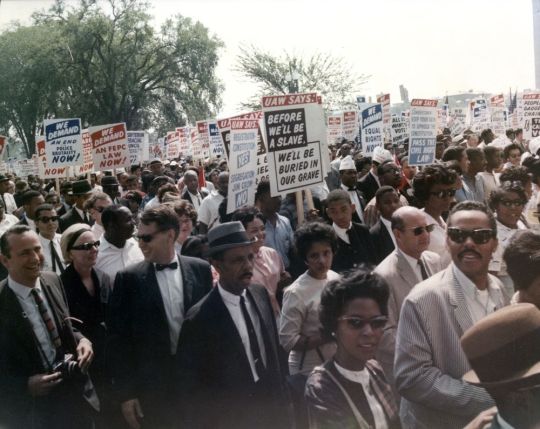
ST-C278-2-63 (PX 96-33). Participants at the March on Washington for Jobs and Freedom, August 28, 1963.
A Gallup poll found that only 23% of Americans who’d heard of the March had a positive view of it - and the negativity didn’t come only from segregationists. President John F. Kennedy’s administration had recently drafted a new civil rights bill for Congress, and some civil rights activists worried that a big protest would push away representatives who were still on the fence about supporting it.
But while a record turnout was expected for the March, civil rights protests weren’t new to the American public in the Kennedy era – especially after a few very public showdowns between the White House and Southern governors. These and other events prompted people across the political spectrum to write to the White House with their views on American protest and civil rights activism. These public opinion letters are now part of the archives at the JFK Library, where we’re working on preserving and describing them.

JFKMPFPOF-0200-005-p04
The first wave of letters about civil rights protests hit the White House in May 1963, when Dr. Martin Luther King Jr.’s “Birmingham Campaign” highlighted the violence that peaceful civil rights activists faced while trying to integrate the city of Birmingham, Alabama. Writers described the atrocities they read about in newspapers or, in some cases, experienced themselves.

JFKMPFPOF-0201-003-p01
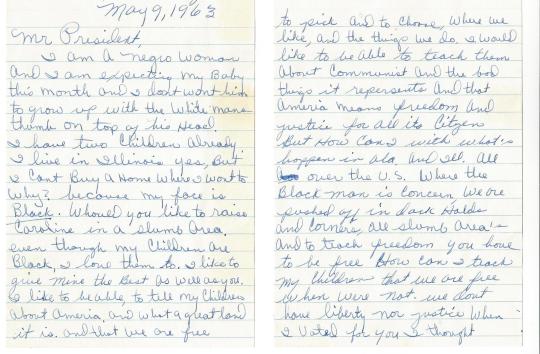
JFKMPFPOF-0201-003-p03
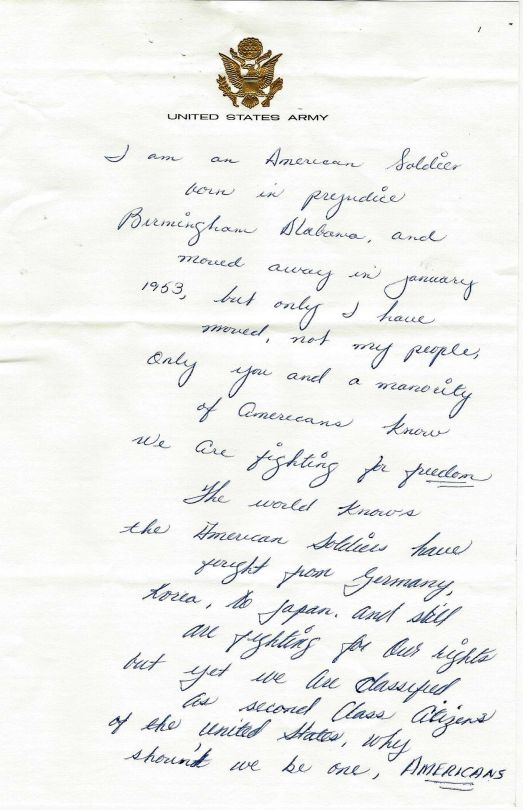
JFKMPFPOM-0198-003-p03
But as news about the proposed March on Washington spread in June and July, a reporter finally asked for JFK’s views about this specific protest at a July 17 press conference. The President defended the right to peacefully assemble, but stopped short of a full endorsement:
I think that the way that the Washington march is now developed…I think that is in the great tradition. I look forward to being here. …I would suggest that we exercise great care in protesting so that it doesn’t become riots, and, number two, that those people who have responsible positions in government and in business and in labor do something about the problem which leads to the demonstration.
After these remarks, the White House saw an increase in letters about the March. Many interpreted JFK’s press conference statement as an outright endorsement, and the reactions varied widely.

JFKMPFPOF-0200-005-p03

JFKMPFPOF-0200-003-p03
Many of the anti-March letters expressed worry that the Civil Rights Movement was controlled by Communists, or predicted riots or violence.
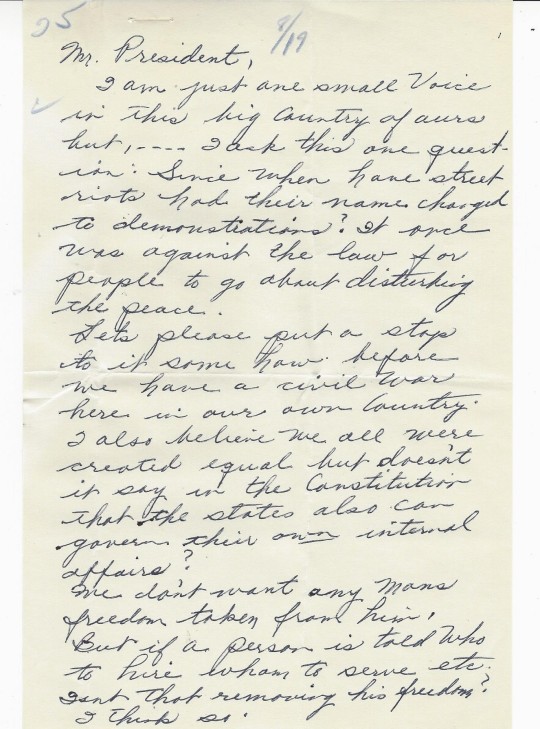
JFKMPFPOM-0199-002-p02
Other writers took the opportunity to write in about civil rights in general, covering a wide range of opinions and beliefs.

JFKMPFPOM-0196-001-p01

JFKMPFPOF-0200-005-p02
Though our archives don’t include White House responses for all of these letters, a form response sent to multiple writers shows consistency with the President’s July statement: that the administration supported peaceful protest, but did not “suggest, approve, or endorse” the March itself.
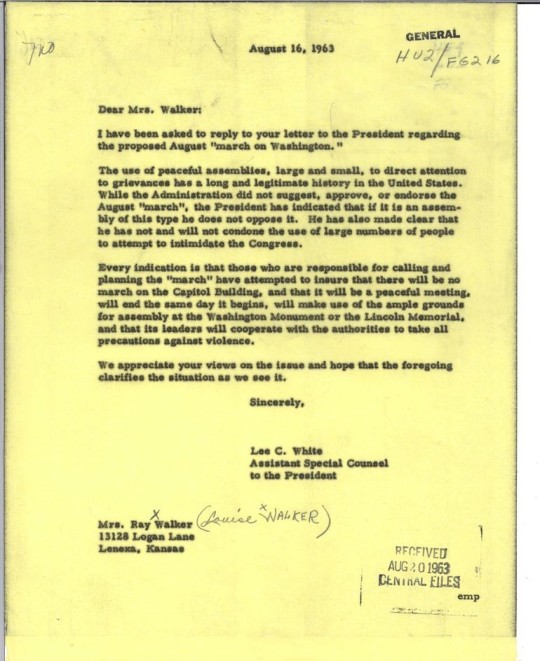
JFKWHCSF-0365-008-p0266
In the end, the March on Washington was a landmark achievement in the history of American protest, safely hosting more than double the number of marchers its organizers had planned for. National Urban League Director Whitney Young summed up the day in an interview after the March: “I just can’t see how anybody could have witnessed this today and denied something long overdue.” But only two weeks later, March leaders found themselves reunited via telegram – this time, to push the White House to action after a Ku Klux Klan bombing killed four little girls in the Birmingham Baptist Church basement. While the March was over, its organizers continued to assert that until the reasons behind it were resolved, the work wasn’t done.


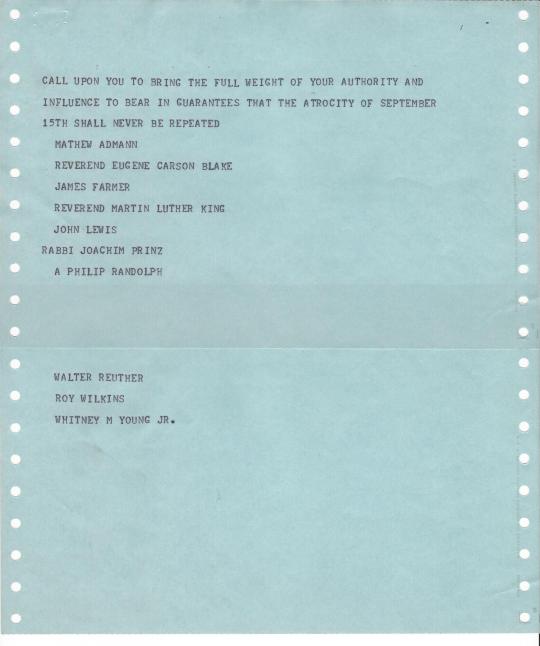
JFKMPFPOM-0197-001
Starting this month, in conjunction with the YWCA’s national program, Stand Against Racism, the JFK Library will share stories of people who took a stand against racism during the Kennedy administration.
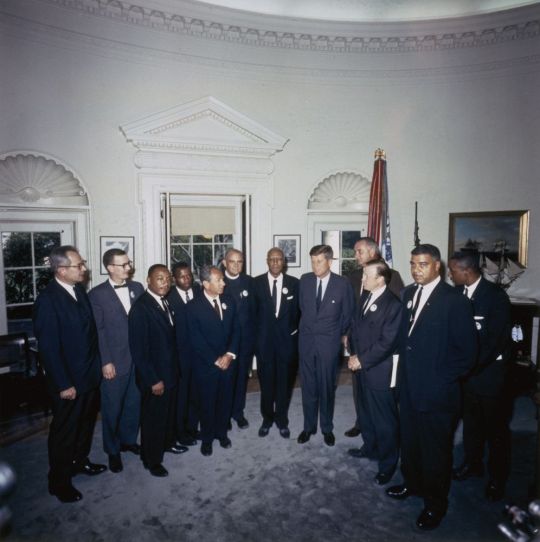
In August 1963, more than 200,000 Americans of all races celebrated the centennial of the Emancipation Proclamation by joining the March on Washington for Jobs and Freedom. Key civil rights figures led the march, including A. Philip Randolph, Roy Wilkins, Bayard Rustin, and Whitney Young.
When civil rights leaders announced plans for a march on Washington that summer, Kennedy initially opposed the idea, fearing a large demonstration in the capital could turn violent and jeopardize his proposed civil rights bill. After a meeting with the leaders, he was persuaded that the March was “in the great tradition” of American protest.
I finally decided on what to put on my poster for the Women’s March on Washington after getting a little inspiration from Frank Turner
Post link
Remembering 14-year-old Emmett Till, who was brutally murdered on this day, August 28, 1955, by white supremacists in Mississippi. Rest in peace, Emmett.

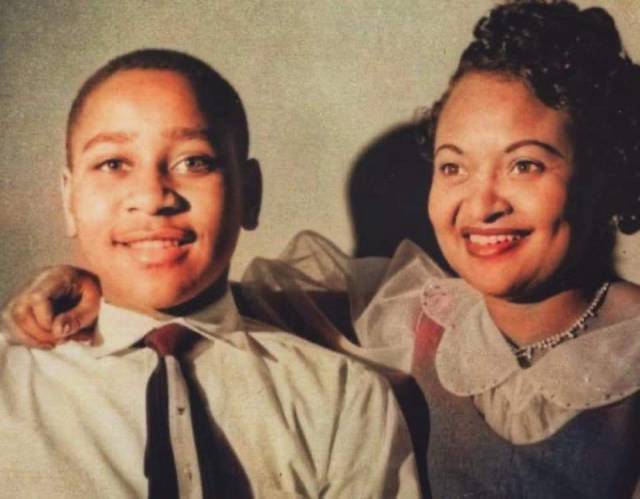
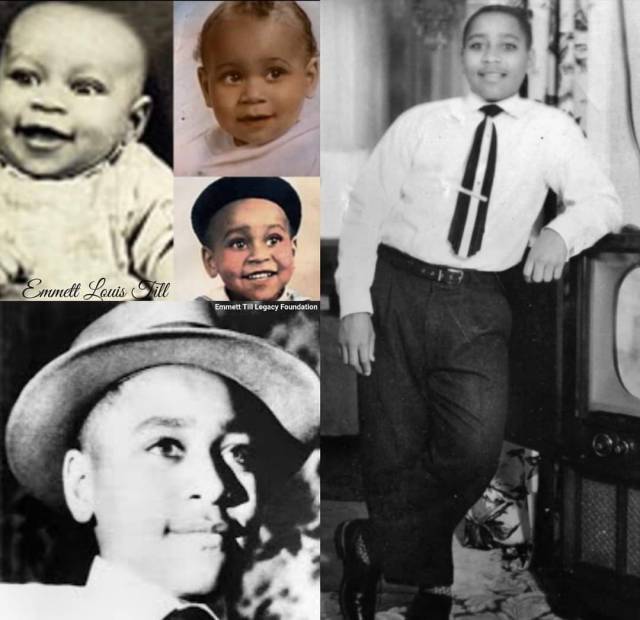

Remembering John Lewis today.
AsNPR covers the 50th Anniversary of the 1969 Stonewall riots, we visit the archives to listen to NPR’s coverage of the first National March on Washington for Lesbian and Gay Rights in 1979, ten years after Stonewall.
In the All Things Considered piece, we hear activist and comedian Robin Tyler addressing the crowd at a rally. She declares that gay and lesbian people are not responsible for the violence committed against them.
“…and they dared to call us violent. Well they don’t have to tell us about violence because they have violated us since the beginning of time. They have violated us in prisons, they have violated us in mental institutions and by behavior modification; they have alienated us from our parents and taken away our children. And they have told us, one of the worst violations of all, that closets stand for privacy and not for prison. So don’t tell us about violence!”
– Robin Tyler, 1979
Gay rights activism and support has evolved over the years, from well before the Stonewall riots to the Pride rallies and marches happening throughout America in 2019.
In Radically Normal: How Gay Rights Activists Changed The Minds Of Their Opponents, NPR’s social science podcast Hidden Brain tackles how American opinions of LGBTQ rights have changed over time.
Evan Wolfson, a proponent of marriage equality since the 1990’s, speaks about how the gay rights movement was able to grow its support:
“In order to really succeed, it was not about just simply asserting our own and talking to ourselves. We had to find a way of bringing the majority of others - who are, of course, the majority - to a better understanding of who we are and a more capacious understanding of freedom.”
– Evan Wolfson, 2019
Posted by Vanessa Barker, NPR RADintern
The National March on Washington for Lesbian and Gay Rights, All Things Considered, 10/14/1979
All Things Considered recorded the voices of speakers, protesters and onlookers at the National March on Washington for Lesbian and Gay Rights in October 1979. The march was one of the first large-scale national demonstrations for gay and lesbian rights. Organizers sought federal anti-discrimination laws to protect gay and lesbian individuals and advocated for the inclusion of sexual orientation as a protected status within the Civil Rights Act of 1954.
“Visibility is protection. Visibility is a way to legislation. And visibility is something that brings others out and gives them courage.”
-Demonstrator at the 1979 National March on Washington for Lesbian and Gay Rights
http://pd.npr.org/anon.npr-mp3/npr/atc/1979/10/19791014_atc_gayrights.mp3
The digital preservation of this audio has been made possible in part by the National Endowment for the Humanities. Researcher Laura Garbes contributed to this post.
Image: Bettman / Getty Images / 1979.
Post link
Tractorcade,All Things Considered, 02/05/1979
In February 1979, All Things Considered visited the National Mall to record a spectacle known as Tractorcade. A convoy of farmers from the American Agriculture Movement drove their tractors thousands of miles in winter conditions from places like Texas, Ohio and Colorado, to rally in support of farmworkers’ rights to earn a living wage.
“The way we…bring our point across…is by bringing the tractor. The tractor is out of place in Washington, D.C.”
- A member of the 1979 tractor convoy
The digital preservation of this audio has been made possible in part by the National Endowment for the Humanities. Researcher Laura Garbes contributed to this post.
Image: Bill Wilson / 1979. Reprinted with permission of the DC Public Library, Star Collection © Washington Post.
Post link
The city of Washington, D.C. holds a symbolic place in American culture as a space to voice a diversity of ideas, views and agendas. @npr has reported on the political tradition of marching on Washington since 1971 when All Things Considered (ATC) debuted with a sound portrait of one of the largest anti-Vietnam War demonstrations in history.
We’re listening back through the archives and rediscovering stories about marches on Washington that reflect NPR’s original mission to represent a “genuine diversity of regions, values, and cultural and ethnic minorities which comprise American society [and]… speak with many voices and many dialects.”
Image: U.S. Information Agency / National Archives & Records Administration / 1963.
Post link
People of Pride #8: Bayard Rustin
Bayard Rustin was the black, gay, non-violent activist responsible for organizing the March on Washington. His pioneering contributions to the fight for economic, racial, & LGBT+ equality are immeasurable, there is so much more to say than there is room to say it. Bayard Rustin is a name lost in history books that should have never been forgotten, I encourage you to read more about who he was, what he loved, and what he conquered here:
- https://www.buzzfeed.com/…/walter-naegle-partner-of-the-lat…
- https://lgbthistorymonth.com/bayard-rustin?tab=biography
- http://www.pbs.org/…/…/who-designed-the-march-on-washington/
Every day in June, I will be posting an illustration that highlights an LGBT+ activist who I believe everyone should know. This series will be in no way comprehensive, & will include a multitude of identities, races, sexualities, and genders.
Post link
Dr. Martin Luther King Jr. speaks on the steps of the Lincoln Memorial during the March on Washington for Jobs and Freedom
(Francis Miller. 1963)
Post link
The Most Searched: A Celebration of Black History Makers ✊✊✊
What a beautiful way to usher in Black History Month!
Artist Statement: Twerk on Washington is a declaration of freedom and healing. Trauma is kept in the body, shake it off.
YouTube:https://youtu.be/LP7uZeVsTBE
VIMEO:https://vimeo.com/346247878
https://www.instagram.com/theshainalynn/

